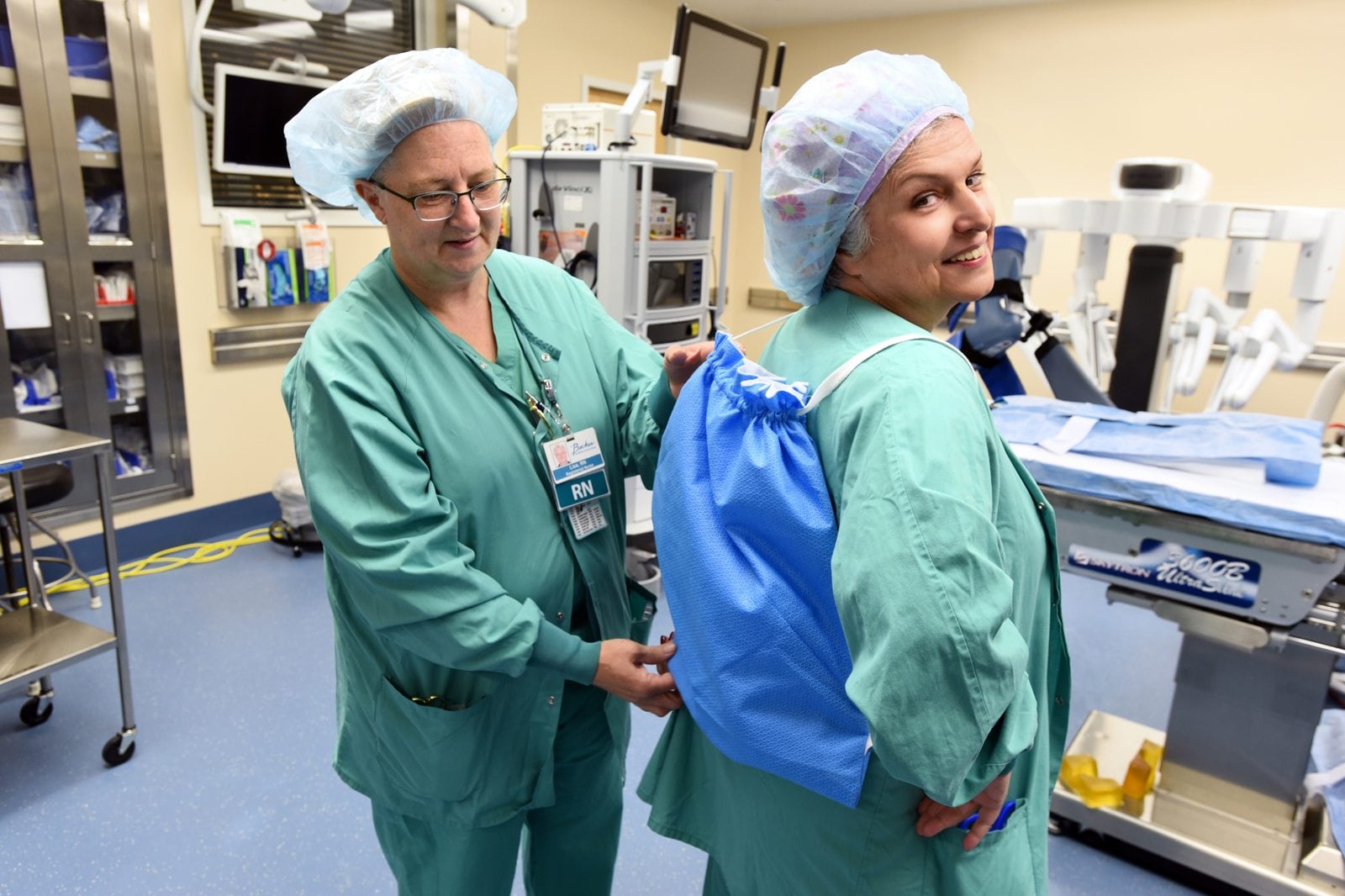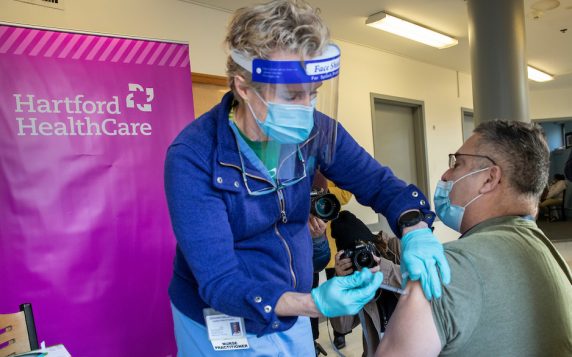Hartford HealthCare, in a pivotal collaboration with the state, outlined a push to add 1,000 nursing positions to its ranks each year for the next five years in an effort to address a dire shortage in the field.
President and CEO Jeffrey Flaks announced the initiative as part of a press conference March 17 at which state officials detailed plans for spending millions in federal American Rescue Act dollars expanding numbers of nursing and healthcare professionals.
Of $72 million in funding, $20 million will help pay tuition for those pursuing nursing and social work, $35 million will be spent increasing the number of faculty needed to teach added students, and $17 million will be put toward student loan forgiveness.
Flaks said companies like Hartford HealthCare need to help with such initiatives, especially after the two-year pandemic strained the healthcare system and its workers, 43 percent of whom are over the age of 50.
“Has there ever been a time, more than this moment, where we saw the value of nurses – the importance, the courage, the bravery, the discretionary effort, the clinical excellence, and the way it was exhibited. When others were told to stay home and stay in place, nurses ran into these organizations to care for us,” he said.
Expanding the pool of nurses will also help retain existing nurses, many of whom feel burned out, Flaks said.
“This initiative is perfectly designed to ensure we educate nurses and retain them here in Connecticut,” he said.
Besides adding positions, Hartford HealthCare launched efforts in the last few months to nurture its nursing ranks, investing more than $7 million to remove debt for employed nurses, double the amount provided for debt assistance and tuition reimbursement, and double the pay for preceptors. The system will also increase the number of student placement positions by 20 percent in next two to three years to “take full advantage of the investment of government,” Flaks said.
Such efforts are sorely needed, according to Department of Public Health Commissioner Dr. Manisha Juthani.
“(This is) investing in the very people that have helped get us through this pandemic, brought us here today and will take us forward in the generations to come. It is an investment in the health and safety of the people of Connecticut,” she said, adding, “Without a stable healthcare workforce, people cannot thrive.”
Many students would not be able to pursue a career in nursing or social work without such help, said Terrence Cheng, president of the State College and University System.
“The past two years has driven home how important it is to have a highly-educated, well-supported workforce. Connecticut’s nurses have worked tirelessly to respond to the global pandemic, while counselors and social workers have helped thousands across state to navigate COVID’s darkest days,” Cheng said. “(This money) paves the path for people to obtain their degrees and have long-term and impactful careers.”
The system, he added, will create faculty and add more than 1,000 student seats in nursing and behavioral health programs. In addition, he said they will strengthen accelerated programs “to get aspiring healthcare workers into the field quickly while obtaining a high-quality education.”
Noting that the pandemic has left a shortage of many necessary positions like nursing, welders at Electric Boat and daycare providers, Gov. Ned Lamont said this effort is about recognizing valuable contributions being made and encouraging new people to enroll in educational programs.
“Nursing takes a lot of heart but we’re not giving people the incentive they need to go into jobs like this,” he said. “We’re trying to do everything we can to encourage young people to take on these incredibly important professions and make it just a little bit easier to do it.”


